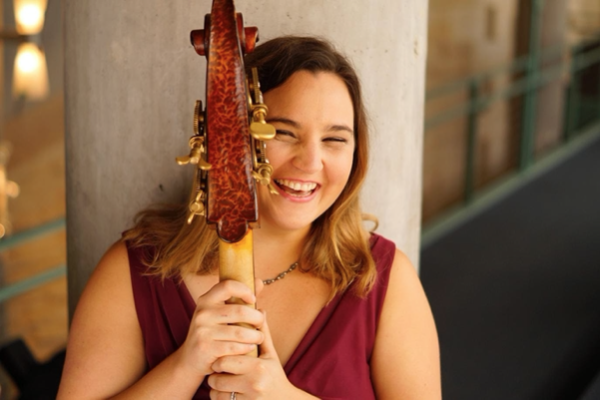By: Eriel Huang
This year has been strange and tumultuous, yet creative and meaningful in many ways. The COVID-19 pandemic has turned everything upside down and left us all completely vulnerable, especially artistic and cultural practitioners.
In asking what is next and exploring how South African musicians can move forward – a young musician, Mariechen Meyer, demonstrated tremendous creative leadership by launching the South African String Convention.
Considering the history of South Africa with its decades of segregate laws and sub-standard education for people of colour, this convention sparked creative social transformation because students who had not previously had physical nor virtual access, nor access to quality teaching were able to access a wide array of rich and locally relevant content, as well as subject experts. Furthermore, faculty of colour were included in the presentations too.
Mariechen is a freelance musician and teacher from Cape Town. Until recently, she has only considered herself to be a classical double bassist by profession, as that was what she studied and trained for.
Throughout the lockdown period, she participated in many different online double bass lessons, masterclasses, and summits. Attending these virtual international platforms, she felt inspired and connected, regardless of the distance. At some point something just clicked, and she asked herself: ‘Why not South Africa?’
This inspiration led her to create a new platform, not merely for local double bass players, but also extended to all South African string players in general. The program made an unusual yet much welcomed inclusion of harp and guitar. The aim was to create a community based environment – allowing professional musicians to give and share knowledge, experience and expertise, thereby accelerating progress in addition to gaining better perspectives of the role of string teachers in a South African context.
Says Mariechen, ‘Never in my wildest dreams did I envision becoming the founder and director of the first online South African String Convention.’
For the inaugural project launched earlier this month, Mariechen brought together 72 local string faculty members, in volunteering capacities – each submitting a short presentation that spanned a variety of subjects related to string instruments, music education, and teaching artistry. Topics ranged from instrument-focused techniques and pedagogical approaches, to performance psychology and playing fitness, as well as guidance on study abroad, winning auditions, and new collaborative project ideas. Dedicated teachers from all over the country infused each video with much creativity and passion – clearly demonstrating the wealth of offering as South African string players. Notable South African professionals currently based abroad had also shared generously.
Videos were premiered over a span of ten days, with each day’s program ending in an interview on Facebook live. Through this interaction, the faculty presenter could answer questions posed from viewers and students, using a dialogical approach to further deliberate on new ideas.
Enabling access and inclusion, Mariechen decided for this year’s platform to be free of charge, and even went the extra mile to fundraise for students without data. Plans are in the works to set up bursaries for even more students to participate next year.
Two plenary sessions brought together the faculty in its entirety, many expressing gratitude and support for this project, and all eager to contribute to future conventions. Students were invited to the second plenary where they voiced enthusiastic attendance and shared positive feedback with the faculty.
In Mariechen’s own words, ‘SASC 2020 was truly a wild roller coaster ride. We learnt from each other, shared with each other, connected with and inspired each other. I have high hopes that this year's convention was the first step towards an annual convention, whether held online or in person.’
Especially during this time of the pandemic, string educators of young and old across racial and class divides were able to unite and be of mutual support to each other. Mariechen’s leadership displayed proactive ingenuity, endeavouring to elevate the learning condition of entire communities of particularly young musicians. As no such platform had previously existed – the convention was a historical first by using technology to level the playing field, providing entry points to knowledge and learning. SASC 2020 is indeed, a ground-breaking game changer with a bright future.
-
Huang, E. (2020, October 20). Pioneering an Unconventional Convention. Creative Generation Blog. Creative Generation. Retrieved from https://www.creative-generation.org/blogs/pioneering-an-unconventional-convention


